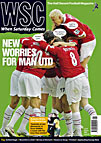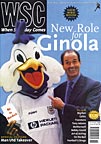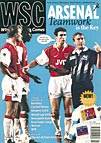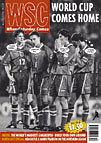 Manchester Utd equal highest ever winning points margin. By Neil Rose
Manchester Utd equal highest ever winning points margin. By Neil Rose
The long-term significance
Unlike Chelsea the previous season, Manchester United refused to bow to Football Association pressure not to compete in the fledgling European Cup after winning the league. However, on May 15, 1956, Birmingham City became the first English club side to compete in Europe, taking part in the International Inter-City Industrial Fairs Cup, for cities that hosted industrial and trade fairs. Games coincided with fairs and thus the tournament took three years to complete. In 1957 Birmingham lost in the semi-final to eventual winners Barcelona after a play-off in Basle in the days before the away-goals rule (which would have benefited Barça anyway). The competition evolved into the UEFA Cup. In a game dubbed “Old World meets the New”, England beat Brazil 4-2 at Wembley, during which the Brazilians – two years away from their first World Cup win – briefly walked off the pitch in a dispute over a penalty. Stanley Matthews, recalled at the age of 42, gave a virtuoso performance. His opponent on the flank, Nilton Santos, whom the Brazilians had said was unbeatable, reportedly told him at the end of the game: “Mister Matthews, you are the king.”



